Aureliu Manea (4 February 1945, Bucharest – 13 March 2014, Galda de Jos) was a Romanian theatre director, actor, and writer.
Contents

Aureliu Manea (4 February 1945, Bucharest – 13 March 2014, Galda de Jos) was a Romanian theatre director, actor, and writer.

Aureliu Manea studied theatre directing under Radu Penciulescu (1930–2019) at the Caragiale National University of Theatre and Film in Bucharest, graduating in 1968. The same year, he made his debut as a director with a highly original production of Henrik Ibsen's Rosmersholm at the State Theatre of Sibiu.

He went on to stage a large number of productions, including works by Shakespeare, Sophocles, Seneca, Chekhov, Arnold Wesker, Jean Racine, Jean Cocteau, and Georg Büchner, as well as Romanian classics, such as Ion Luca Caragiale's A Stormy Night and Tudor Mușatescu's Titanic Waltz, and plays by contemporary Romanian dramatist Teodor Mazilu (1930–1980). Suffering from ill health, Manea withdrew from theatre life in 1991 and was a patient at the Neuropsychiatric Recuperation and Rehabilitation Centre, Galda de Jos, Alba County, until his death in 2014. [1] He is buried at the Hajongard Cemetery in Cluj-Napoca. [2]
In 1993, he was awarded the UNITER (Uniunea Teatrală din România) Prize for Lifetime Achievement. In 2014, the Turda Municipal Theatre was renamed the Aureliu Manea National Theatre in honour of the director, who staged many of his productions there.
Franco-Romanian theatre critic Georges Banu likens Manea to Argentinian director "maudit" Victor Garcia, an exponent of "absolute theatre, incandescent theatre," whose genius was recognised and admired at the time by Jean Genet and Peter Brook. [3] Banu followed Manea's career from the very beginning, writing a review of his debut production, Rosmersholm, staged at the State Theatre of Sibiu in 1968. According to Banu, Manea's production succeeded in creating an intense sense of unease in both cast and audience by embodying Ibsen as a ghostly presence moving among the actors on stage. [4] Similarly, Pastor Rosmer's wife, who commits suicide before the play begins, is present during the performance as a ghostly figure hovering above the stage, as if directing and influencing the actors' actions. [5] In The Energies of Performance, Manea recounts that his reading of Rosmersholm was as a drama that went against nature and life, which prompted him to have the cast appear dressed all in black sackcloth. The only moment relieving the blackness came in Pastor Rosmer's monologue, which the actor spoke while biting the cloth of a white flag, with the resultant tortured delivery conveying how the character's rage for purity had become his own torture. [6] Around this time, Manea staged a production in Timișoara of angry young man Arnold Wesker's Four Seasons, in which he tried to convey the idea of a "failed construction", with lead actors Ovidiu-Iuliu Moldovan and Florin Cercel interrupting their performance to sit down on the stage to rest for two minutes whenever the dramatic situation became false, ridiculous, or unrealistic. Wesker saw the production when it was staged in Bucharest and enjoyed it, but felt it was a performance of someone else's play. [7]
The year before Rosmersholm, in 1967, Manea had been due to stage a production of Sophocles' Philoctetes at the Iași National Theatre, but the premiere was suspended for three years after Teofil Vâlcu, in the lead role, seriously injured himself in a fall from a rope he was climbing onstage during rehearsals. The production featured an Elizabethan-style set intended to convey an aesthetic of brutal, bloody acts that are inherent to an ineluctably violent history and costumes designed to suggest both savagery and a technologically advanced civilisation. [8] After Rosmersholm, Manea continued to stage innovative, visually arresting productions at theatres around Romania, His production of Racine's Britannicus at the Piatra Neamț Youth Theatre in 1969 [9] featured scenes of highly aestheticised, ritualistic torture, which director Liviu Ciulei likened to Japanese Noh theatre, although Manea was unfamiliar with this tradition at the time. [10]

In 1972, Manea staged a production of Jean Cocteau's The Typewriter at the State Theatre, Turda, which employed as its visual metaphor B movies and the blurring of cinema and real life, with Solange portrayed as a narcissist who steps onto the stage from a white screen at the beginning of the performance and acts out the final suicide scene as if she were on the big screen. [11] In Manea's 1973 production of Marivaux's Le Jeu de l'amour et du hasard at the National Theatre, Cluj, he imagined the action as a game presided over by Orgon as both master of ceremonies and ideal audience, in which the action is a dialogue between costumes rather than characters. [12]

In 1975, Manea's production of Twelfth Night, which he conceived in the manner of what he called a "philosophical variety show", [13] staged at the Cluj National Theatre, with sets by Paul Salzberger, drew standing ovations. [14] The following year, hisMacbeth, staged at the Ploiești Theatre in 1976, drew on Japanese Kabuki theatre, with a stark set that evoked a desolate, snowy landscape, dominated by a wooden throne symbolising Macbeth's barbarous, brutal power, "adorned with furs and animal heads, which were trophies of earlier conquests and omens of the death that was to come." [15] A contemporary reviewer saw the production as a "cosmic" clash "between Good and Evil, between Life and Death, between order and chaos, or between nature and the human being as a representative of social convulsion." [16]
During his career, Manea staged only one production in Bucharest, however, since he saw the actors there as "too big" and preferred to work with lesser-known actors, who were not given to displays of ego and did not contest his direction: [17] As a director, he saw theatre not as a vehicle for individual actors, but rather as the "art of solidarity", "a ritual of togetherness" uniting actors and audience. [18] Produced by Manea's sister, Viorica Samson, the production in question, for which Manea came out of retirement after two decades in the Galda de Jos Neuropsychiatric Recuperation Home, was a dramatisation of the letters of Mariana Alcoforado, staged at the Metropolis Theatre, Bucharest, with sets by Paul Salzberger. [19]

In 1983, Manea published Energiile spectacolului (The Energies of Performance), [20] a series of short meditations on directors (Liviu Ciulei, Jerzy Grotowski, Peter Brook) and directing; playwrights (Sophocles, Gogol, Shakespeare, Aristophanes, Racine, Strindberg, Carlo Goldoni, Brecht, Chekhov, Molière, Marivaux); actors and acting; the ritual and psychological laws governing stage properties; the mechanisms of attention during performance (the director is an "engineer of attention"); theatre as officiation of a sacral rite; directorial intention, improvisation, chance, and the "entropic phenomenon" in theatrical performance; and the fundamental enigma and ephemerality of the theatrical act. In Spectacole imaginare, [21] published in 1986, Manea takes nineteen plays by Shakespeare (Richard II, The Merchant of Venice, The Tempest, As You Like It, Two Gentlemen of Verona, Julius Caesar, Much Ado About Nothing, The Comedy of Errors, Love's Labours Lost, A Midsummer Night's Dream, Romeo and Juliet, King John, Richard III, The Taming of the Shrew, Titus Andronicus, Twelfth Night, Othello, Macbeth, Hamlet) and imagines a production that might penetrate the enigma of each play, its timeless human mystery. The "Imaginary Performances" are followed by a series of "Confessions", in which Manea meditates on his work as a director, on his past productions and work with specific actors and playwrights, on the puppet theatre, on performance as a ritual of profound communion between audience and actors, on the giants of universal drama (Aeschylus, Goethe).
In 2012, Viorica Samson Manea, the director's sister, edited and published a collection of Manea's writings: the trilogy of plays Penelope Falls to Thinking, The Theatre Rehearsal, and The Fairy from the East, short stories, and an essay ("Man's Solitude, or Narcissus"). [22] Penelope Falls to Thinking was presented in the Reading Performances section of the Sibiu International Theatre Festival in 2012. [23] In 2013, the Cluj National Theatre staged a production of Manea's trilogy of plays, directed by Gábor Tompa. [24]
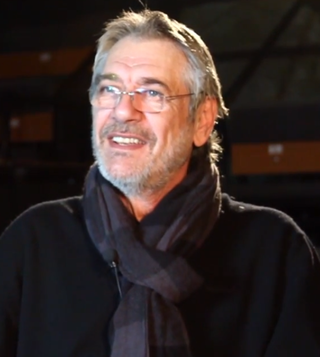
Marcel Iureș is a Romanian actor. He is one of Romania's most acclaimed stage and film actors. He has acted in films and on stage both in Romania and internationally, and has played at least ten roles on Romanian and British television. His work includes voiceovers for Disney and computer games. Iureș is the president and a judge of the Anonimul International Film Festival and also the president of Ideo Ideis Festival.

Costache Caragiale was a Romanian actor and theatre manager who had an important role in the development of the Romanian theatre.

The National Theatre Bucharest is one of the national theatres of Romania, located in the capital city of Bucharest.

Robert Cohen is an American university professor, theatre director, playwright, and drama critic. Now a Claire Trevor Professor emeritus after 50 years teaching at the University of California, Irvine since 1965, he continues to write, and has published many books on theatre, along with articles, dramatic anthologies and many plays, and has conducted advanced teaching residencies in numerous countries and much of the United States. He has been called a Master Teacher by the Voice and Speech Trainers Association, has been praised as a "walking theatre directory and encyclopedia" by his fellow teachers, and has been honored during his career with the Polish Medal of Honor, the Honoris Causa Professor Degree at Babes-Bolyai University in Romania, UCI's Distinguished Professor of Research, and the Career Achievement Award from the Association for Theatre in Higher Education.

Liviu Ciulei was a Romanian theater and film director, film writer, actor, architect, educator, costume and set designer. During a career spanning over 50 years, he was described by Newsweek as "one of the boldest and most challenging figures on the international scene".

The Lucian Blaga National Theatre in Cluj-Napoca, Romania is one of the most prestigious theatrical institutions in Romania. The theatre shares the same building with the Romanian Opera.
Mihai Maniutiu is a Romanian-born theatre director, writer and theatre/performance theoretician. He has directed over eighty productions in important theatres, many of which have been toured internationally, broadcast on European TV channels, and won numerous awards in the categories for Best Director, Best Production, and Originality. Maniutiu is a professor at the Faculty of Theatre and Television of the Babeș-Bolyai University in Cluj-Napoca, Romania and Artistic Director and General Manager of the National Theatre of Cluj. In addition to teaching directing, acting, and performance studies at the Faculty of Theatre and Television of the University of Cluj, and his position of General Director of the National Theatre in Cluj, Maniutiu has also been Artist-in-Residence at the Center of Excellence in Image Study at the University of Bucharest since Fall 2009.
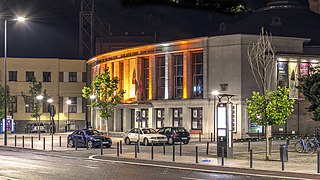
The State Hungarian Theatre of Cluj is a theatre in Cluj-Napoca, Romania. Performances are played in Hungarian, with simultaneous translation into Romanian or English usually available.

Gábor Tompa is an internationally renowned Hungarian theater and film director, poet, essayist and teacher. Between 2007 and 2016 he was the Head of Directing at the Theatre and Dance Department of the University of California, San Diego. He is the general and artistic director of the Hungarian Theatre of Cluj since 1990, the theatre is member of the Union of the Theatres of Europe (UTE) since 2008. Founder and artistic director of the Interferences International Theatre Festival in Cluj, Romania. President of the Union of the Theatres of Europe since 2018.
Vlad Mugur was a Romanian-born German theater director.

Elevator is a Romanian independent film directed by George Dorobanțu and written by Gabriel Pintilei. The screenplay adapts Pintilei's own 2004 stageplay Elevator, which was inspired by a real story that took place in London in 2002. Both the movie and the play won several national and international awards.
The Sibiu International Theatre Festival is one of the most important theatre and performing arts festivals in the world, and the third biggest, after the Festival d'Avignon and the Edinburgh International Festival. FITS takes place in the city of Sibiu, Romania, in June every year and lasts for ten days. Founded in 1993 by Constantin Chiriac, the festival programme features renowned names of the international stage, offering spectators a broad range of sections, with guests from around 73 countries per edition, performing approximately 550 events.
The Transversal Theater Company (TTC) is a nonprofit organization of American and European artists based in Amsterdam. Founded in 2003 by Bryan Reynolds, Lonnie Alcaraz, Douglas-Scott Goheen, and a number of other artists, TTC is an experimental theater company known for creating original performance works that explore charged social, cultural, conceptual, and political realities of today through the combined social-cognitive theory, performance aesthetics, and research methodology known as Transversal Poetics. The products of this praxis or practice research (practice-as-research) approach have been various and far-reaching, including a theory of acting and design aesthetics. TTC has toured productions to festivals and other venues in the United States, Europe, the Middle East, and Asia, such as to the national theaters of Poland and Romania, Armenia's HIGH FEST, Romania's National Theatre Festival, Sibiu International Performing Arts Festival, and Interferences Festival, the Gdansk International Shakespeare Festival. TTC's core members and contributing artists have included Robert Cohen, Gary Busby, Lonnie Alcaraz, Niels Horeman, Giovanni Morassutti, David Backovsky, Sky Reynolds, Shira Wolfe, Laila Burane, Christopher Marshall, Saskia Polderman, Luke Cantarella, Alan Terricciano, Christa Mathis, Kayla Emerson, Karyn Lawrence, Amanda McRaven, Michael Hooker, Stan Limburg, Henk Danner, Matthias Quadekker, Babette Holtmann, Mathieu van den Berk, Erik Lint, Alex Hoffman, Sam Kolodezh, Richard Brestoff, Bob Boross, and Oscar Seip.
Alexandru "Alec" Secăreanu is a Romanian actor. He gained international recognition for playing Gheorghe in the 2017 film God's Own Country.
Alexandru Dabija is a stage director and actor in Romanian theater and film.
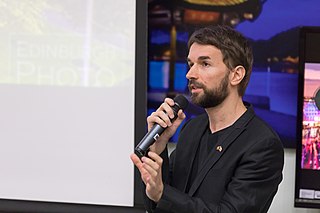
Professor Octavian Saiu is a scholar and professional theatre critic.
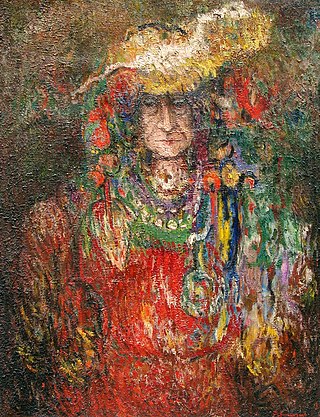
Lucia Sturdza-Bulandra was a Romanian actress and acting teacher. She is widely regarded as one of the most important figures in the history of Romanian theater.
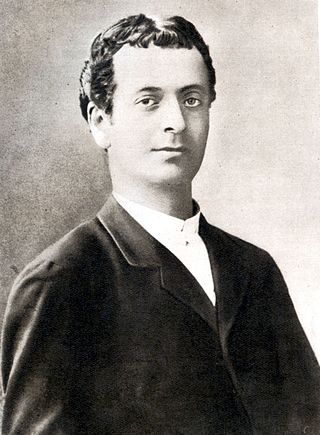
Constantin I. Nottara was a Romanian stage actor and director.

Ion or Iancu Brezeanu was a Romanian stage actor.
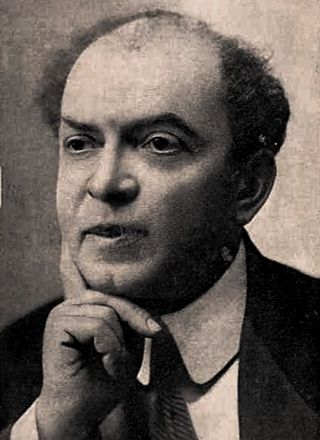
Petre Liciu was a Romanian stage actor.